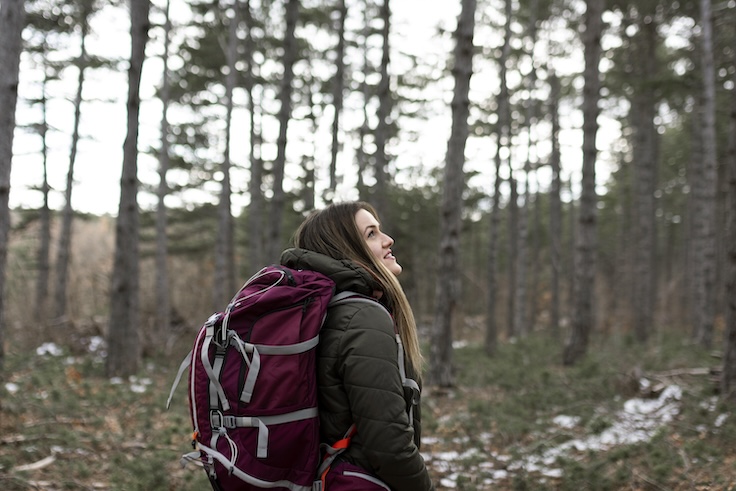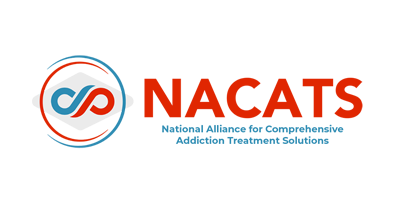
In 2022, more than 3,000 Tennesseans lost their lives to an opioid overdose. Unfortunately, it’s not just Tennessee that’s affected by the epidemic. More than 2,000 people in Virginia lost their lives the same way that year. Opioids have stolen the lives of too many Appalachians.
That’s why, at ReVIDA® Recovery, we’ve made it our mission to end opioid use disorder (OUD) in Appalachian communities. We use medication-assisted treatment (MAT) to empower people to reclaim their lives from OUD.
Sublocade treatment is one of the most effective MAT options for combating OUD.
What We Treat: Opioid Use Disorder
At ReVIDA® Recovery, we specialize in treating OUD. You have OUD when you develop a physical and psychological reliance on illicit opioids or prescription opioids. Examples of street opioids include substances like fentanyl and heroin. Prescription opioids include Percocet, Valium, Codeine, and more.
Opioids bind to opioid receptors in the brain and central nervous system. In response, your body releases large amounts of endorphins and dopamine, which are feel-good chemicals. Dopamine activates the brain’s reward system, which makes you want to repeat that activity. You quickly build a tolerance to opioids, meaning you need more of them to get the same effect. This is what leads to OUD.
How We Treat: Medication for Recovery
Sublocade is an extended-release medication used to treat OUD. It is a partial opioid agonist. This means that its active ingredient, buprenorphine, binds to opioid receptors without the effects of a stronger opioid, like morphine. Buprenorphine has a ceiling effect, so you don’t experience a “high” when taking it.
A medical professional administers Sublocade as an injection once a month. Sublocade goes from a liquid to a solid gel, known as a depot, when it’s in the body. The depot then releases buprenorphine at a steady rate throughout the month.
Sublocade reduces withdrawal symptoms and opioid cravings. It also prevents you from feeling high if you take an opioid. Sublocade manages the worst of your physical symptoms for you so you can focus on other parts of your recovery journey.
Sublocade and Other Types of Buprenorphine
In addition to Sublocade, we also provide Suboxone treatment. Suboxone comes as a tablet as well as a film. Both types of Suboxone are placed under the tongue. Suboxone combines buprenorphine with naloxone. Naloxone is commonly used to reverse the effects of an opioid overdose.
You and your doctor will work together when deciding whether Sublocade or Suboxone is the right treatment method for you. In order to get on Sublocade, you must be stable on oral buprenorphine (Suboxone) for at least a week.
One of the benefits of being on Sublocade is the once-monthly injection. With daily oral buprenorphine like Suboxone, you’re more likely to accidentally miss a dose.
Do I Need Treatment for Opioid Use Disorder?
It’s important to recognize the signs of OUD so you know when to reach out for treatment. Not everyone who takes opioids has OUD. But if your opioid use is getting in the way of your life, treatment could help you.
Some signs of OUD include:
- Being unable to stop taking opioids despite multiple attempts
- Building a tolerance or needing more opioids over time to get the same effect
- Continuing to take opioids even when they’re causing physical health problems
- Constantly thinking about opioids and when you can get them next
- Participating in risky behaviors while under the influence of opioids, such as driving or unprotected sex
- Continuing to take opioids despite the negative impact on your relationships
- Not being able to complete work or other obligations due to your opioid consumption
- Spending more money than you can afford on opioids
Another major sign of OUD is experiencing withdrawal when you stop taking opioids. Withdrawal symptoms are not usually life-threatening, but they can be painful. Opioid withdrawal causes flu-like symptoms, including sweating, nausea, vomiting, diarrhea, and body aches.
Withdrawal also causes psychological symptoms like anxiety and irritability. Depression and thoughts of suicide often occur during withdrawal. Anyone who is thinking about hurting themselves or someone else needs to seek immediate medical attention.
Should Buprenorphine (Sublocade) Be Part of My Treatment?
Sublocade and other buprenorphine medications are a good fit for a lot of people recovering from OUD, but they are not always right for every individual.
During your first ReVIDA® Recovery appointment, you’ll meet with a doctor. Together, the two of you will discuss your medical history, current medications, and any concerns you may have. Once you have discussed the options with your doctor, you can decide whether or not Sublocade is the right choice for you.
How Sublocade Treatment Works
As mentioned above, Sublocade works by releasing a steady amount of buprenorphine into the bloodstream throughout the month. But Sublocade is just one aspect of how we treat at ReVIDA® Recovery. In addition to your monthly doctor’s appointment, where you’ll receive your Sublocade shot, you’ll also have access to other resources.
Individual Therapy
When people turn to opioids, there is usually pain or trauma underneath. That’s why every patient at ReVIDA® attends therapy. You and your therapist will work together to understand the root causes of your OUD and any co-occurring mental health conditions.
Using cognitive behavioral therapy (CBT), you’ll come to understand the relationship between your thoughts, feelings, and actions. Your therapist will empower you to identify negative thought patterns and develop coping strategies, leading to healthier behaviors.
All of our therapy schedules are designed to be flexible and work with busy schedules, so you can fit in treatment and keep up with responsibilities at work and home.
Group Therapy
You’ll also participate in group therapy. All of the patients at ReVIDA® Recovery receive MAT treatment for OUD. Our group sessions help to reduce stigma and connect you with other people with similar life experiences.
In group therapy, you and your fellow members will learn from each other. You’ll support each other through the more difficult aspects of recovery and celebrate milestones together. Group therapy will allow you to make connections that will sustain you through your recovery journey.
Care Coordinator
Recovery goes beyond simply treating the physical and psychological symptoms of OUD. It touches all different aspects of your life. That’s why every patient at ReVIDA® Recovery is assigned a care coordinator.
Your care coordinator will help you get access to different resources that you need to recover in the long term. You can come to them for help with SNAP, housing, and job help. Your care coordinator can also help you navigate child protective services, court letters, custody proceedings, and more.
Telehealth
Once you’re an established patient, you’ll have access to our telehealth services. We know that sometimes it’s difficult to coordinate transportation and responsibilities like childcare for regular visits.
You will still have to come in once a month to get your Sublocade shot. However, you’ll have access to our telehealth services for things like individual therapy, group therapy, and meetings with your care coordinator.
What to Expect From Sublocade Treatment: ReVIDA® Recovery Values
Our values guide all of our treatment decisions. We want every patient to feel safe and comfortable receiving care from ReVIDA® Recovery.
Our values are:
Respect. We show respect to our staff, patients, and community by valuing each other’s strengths and contributions.
Excellence. Our clinical work is rooted in science and data. We believe that quality work and evidence-based practice are the way to get the best results.
Visibility. We are proud of our ability to support people in our community and do everything we can to reduce the stigma around OUD.
Integrity. We believe in honesty, transparency, and reliability. We always do right by our patients.
Dedication. We stand by our mission and our patients. We are committed to helping our patients reach their recovery goals.
Accountability. We are individually and collectively responsible for our actions. We have to learn from our mistakes while also celebrating our successes.
Does ReVIDA® Recovery Take My Insurance?
ReVida takes most commercial insurance, including Aetna, Anthem, United Healthcare, Cigna, and Humana. We also take Medicare. Check our insurance page to see if we accept your insurance. Your admission specialist will help you understand what your costs are and what your insurance covers.
If you do not have insurance, we have scholarship programs to help pay for treatment.
Buprenorphine (Sublocade) Treatment in Appalachia
Living with OUD makes life complicated. But with the right treatment programs, recovery doesn’t have to be.
Sublocade is just one piece of the recovery puzzle. It is one tool we can use to make recovery more manageable. At ReVIDA® Recovery, you’ll have a whole team of professionals working to help you reclaim your life from OUD. You are worth the time and effort that recovery takes.
If you or someone you love is living with OUD, ReVIDA® Recovery is here to help. Our team specializes in MAT for OUD. We believe in Sublocade’s efficacy because we’ve seen it work for our patients. To get started today, call us at 423-631-0432 and learn more.
Reclaim Your Life







